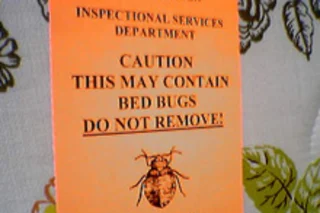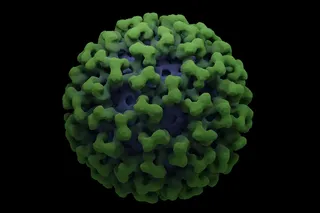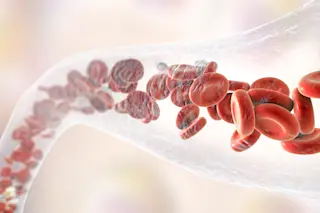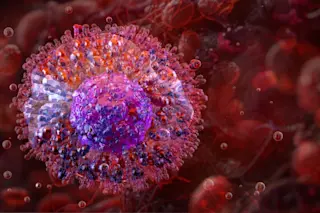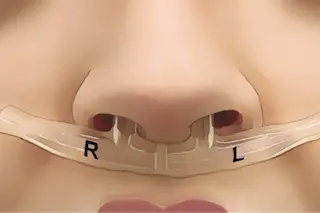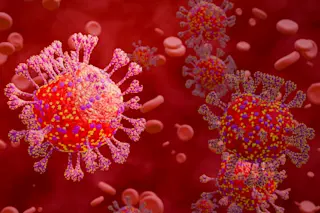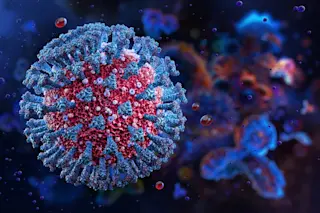Bed bugs are a nuisance that is on the rise around the world, but the bugs don't spread disease, according to new research. Because they feed on blood, there was a concern that the pests transmitted diseases like HIV and hepatitis, but it now seems that they don't pose a health threat. Led by entomologist Jerome Goddard, the study showed no sign of disease transmission by the bugs; it did confirm, however, the bugs' increased resistance to insecticides and the lack of alternative methods to eradicate infestations, as well as the lack of effective treatment options for troublesome bites. Many people don't even know they've been bitten: 7 in 10 people see no signs apart from an almost invisible puncture mark on their skin. When people do get a reaction, it usually takes the form of red, itchy patches a few millimetres across, each one the result of an individual bite [The Guardian]. Allergic reaction is also possible, but rare, and any rash that results will disappear on most people within a week, although scratching can prolong the symptoms. The study, published in the Journal of the American Medical Association, involved a review of medical records and journalistic coverage of bed bugs from as far back as 1892, and only included articles that met certain criteria in terms of clinical evidence for the medical articles and measured reductions of infestations for the pest control articles.... [And] they found little evidence that "they are vectors of communicable diseases" [Medical News Today]. Bed bugs, also known as Cimex lectularius, can live for up to a year without feeding and grow to half a centimeter long—or even bigger just after a meal. They have been a human parasite for thousands of years, and infestations are rising fast, more so in developed countries, probably due to international travel, immigration, changes in how pests are controlled and insecticide resistance [Medical News Today]. It's impossible to tally the number of people who get bitten, Goddard says, but estimates about half of them suffer hives and itching. "When [bed bugs] feed, they're spitting saliva in there. There's proteins in that and people can become sensitized" [Scientific American]. Goddard himself seems to be immune to the bugs' irritating effects, although he allows that they're still unpleasant to have around. Over six months, he allowed 15 of the buggers at a time to feed on him periodically, to no avail. "I fed them on me and there was no reaction. [Nevertheless,] I'm a bug man but I wouldn’t want to bring them home" [Scientific American]. Related Content: DISCOVER: Vital Signs: Bugs Are Crawling In My Skin
Image: Flickr / grenade


